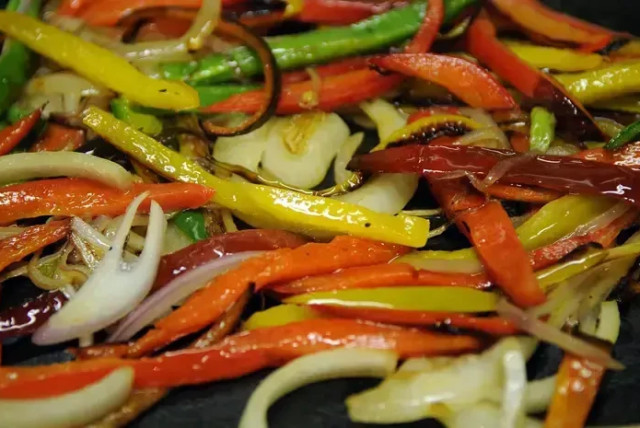Which color of pepper is healthiest?

It turns out that each color of pepper has its own advantages.
Did you know that peppers are technically fruits and not vegetables? Regardless, they are known for their abundance of vitamins and antioxidants. But are there any notable health differences between red, green, or orange peppers?
Red peppers have the highest concentration of vitamins and antioxidants, due to their longer ripening process allowing them to accumulate more nutrients. They contain elevated levels of vitamin C and vitamin A, thanks to the presence of beta-carotene and lycopene, which give them their red color.
In fact, the ripeness of the pepper is the primary distinction between red, orange, yellow, and green peppers. Green peppers, being less ripe, are more bitter compared to the sweeter red ones. Generally, the darker the pepper, the more nutrients it contains.
While green peppers have a lower sugar and carbohydrate content, the differences are negligible. Yellow and orange peppers also provide ample vitamin C and vitamin A, along with lutein and zeaxanthin, which promote eye health.
Eat peppers of all colors
However, these antioxidants are present in lesser quantities compared to red peppers. Peppers of all colors are rich in vitamins C, A, B6, and B9, and are a good source of fiber like many other fruits and vegetables. Red peppers particularly boast an abundance of flavonoids and phytonutrients, which combat cardiovascular diseases and maintain hormonal balance. For optimal nutritional benefits, it is recommended to consume peppers of all colors.
When it comes to cooking peppers, the process can both dilute and enhance their nutrients.
Cooking can enhance the absorption of carotenoids like beta-carotene, but frying or sautéing can slightly decrease their availability. Heat and water sensitivity affect vitamin C and several B vitamins, so long cooking times can lead to a reduction in the vitamins obtained from the peppers. If boiling peppers, it is advisable to retain the water as it contains the lost vitamins and antioxidants. This water can be frozen and used later as a vegetable stock, preserving its nutritional value.
Peppers of different colors offer varying nutritional components, making it beneficial to include them all in your diet. Cooking methods can affect the nutrient content, but incorporating both raw and cooked peppers can contribute to overall health. Remember, peppers are not only delicious but are also an excellent nutritional choice.
Jerusalem Post Store
`; document.getElementById("linkPremium").innerHTML = cont; var divWithLink = document.getElementById("premium-link"); if (divWithLink !== null && divWithLink !== 'undefined') { divWithLink.style.border = "solid 1px #cb0f3e"; divWithLink.style.textAlign = "center"; divWithLink.style.marginBottom = "15px"; divWithLink.style.marginTop = "15px"; divWithLink.style.width = "100%"; divWithLink.style.backgroundColor = "#122952"; divWithLink.style.color = "#ffffff"; divWithLink.style.lineHeight = "1.5"; } } (function (v, i) { });

